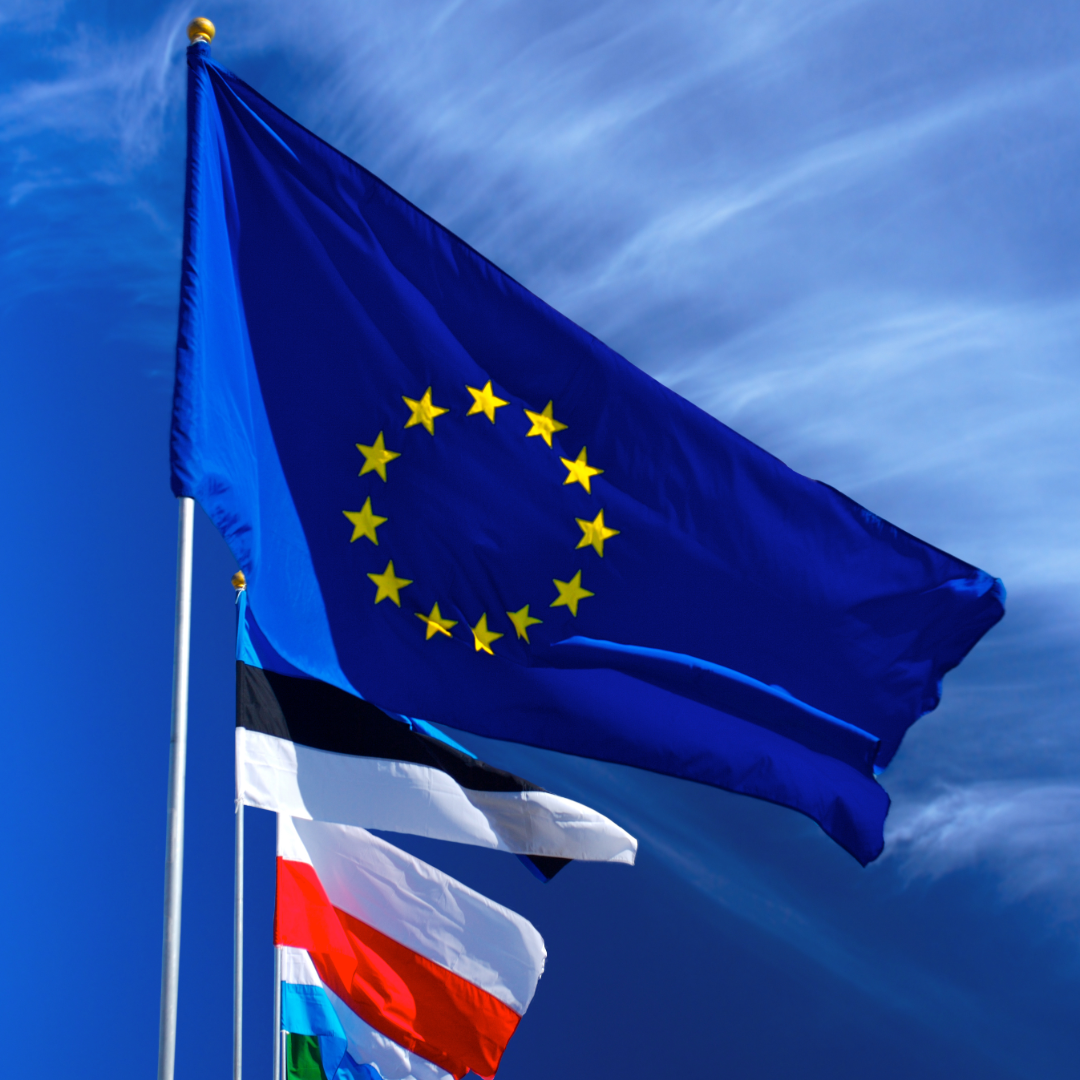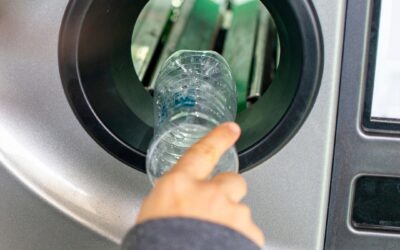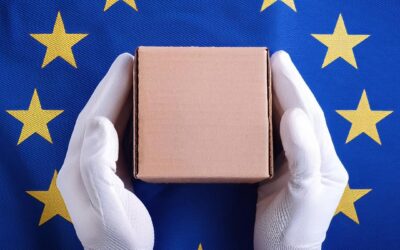Authorised Representatives in Europe: Which ones are there and what do you need them for?
Content:
- A brief categorisation of the term AR and its relevance
- Overview: The most important Authorised Representatives in the EU
- Special scenario: The role of the Authorised Representative for packaging
- What could happen if you don’t appoint an Authorised Representative?
- Why Lizenzero is the right partner for packaging AR
- Conclusion on the EU Authorised Representative



Europe is an attractive but regulatory complex market in which many products from other European and international countries are sold.
One of the more complex requirements is the appointment of an authorised representative (AR). The AR is the central interface between the manufacturer and the European market surveillance authorities. The authorised representative plays an important role in product safety and extended producer responsibility (EPR) and is therefore becoming increasingly important to ensure access to the market.
In order to clear up the regulatory jungle a little, we explain in the following article what you can appoint an authorised representative for in the EU, such as in the areas of extended producer responsibility or for product safety standards.
A brief categorisation of the term AR and its relevance
Before we take a closer look at the individual types of authorised representatives, let us briefly classify them: What is an authorised representative and why exactly is it becoming an increasingly common requirement in the EU?
What is an Authorised Representative?
In general terms, an authorised representative is a natural or legal person who officially acts as a representative of a company in a country in which it does not have its own registered office. As the name suggests, they are appointed by means of a power of attorney. Once appointed, the authorised EU representative can act on behalf of a company and make decisions, such as concluding contracts. Exactly which tasks the authorised representative takes on depends on the context, more on this in a moment.
Why is the Authorised Representative increasingly becoming the rule in the EU?
The authorised representative is increasingly becoming the norm, as it is difficult for European market surveillance authorities to enforce regulations for companies from non-EU countries. If there is a representative of the company in the country, this becomes easier (for both sides) as there is a person on site to address the issue. Why is it easier for both sides? Because European bureaucracy is not always easy to navigate, expert knowledge and an understanding of the local language are essential to really understand all the intricacies.
Overview: The most important Authorised Representatives in the EU
Enough general classification, what types of authorised representatives and authorised EU representatives are there in the EU?
EU Authorised Representative for CE-marked products
The CE marking obligation applies to products that must fulfil certain European safety, health and environmental protection requirements. The CE standard is relevant, for example, for
- Machinery (Machinery Directive 2006/42/EC)
- Electrical appliances (Low Voltage Directive 2014/35/EU)
- Toys (Toys Directive 2009/48/EC)
- Building materials (Construction Regulation 2011/305/EU)
- Medical devices (MDR 2017/745/EU or IVDR 2017/746/EU)
- Batteries (Battery Directive 2023/1542/EU)
- and many other product classes
The CE mark does not provide any information about the origin of a product, but makes it clear that products are approved for the European Economic Area and fulfil the minimum legal requirements.
Who needs CE labelling?
All companies that supply products to EU countries must deal with the authorisation of their products that fall under the CE marking obligation. This applies to companies based inside and outside the EU. This includes ensuring that they fulfil all requirements. If they do not, they are not allowed to sell their products in the EU. Without an establishment in the EU, these obligations also include appointing a CE authorised representative.
The CE authorised representative
The authorised representative is the point of contact for authorities and is primarily responsible for administrative tasks, such as providing the EU Declaration of Conformity and the technical documentation for national market surveillance authorities for CE-marked products. The EU-Rep is also the first point of contact for official bodies in the event of product recalls.
Special feature: CE labelling applies to many product groups. A single CE authorised representative for the entire EU is sufficient if there is no company headquarters in the EU.
Authorised Representative for medical devices
As is already clear from the list, special requirements for product safety and market surveillance also apply to medical devices. Here too, you are obliged to submit an EU declaration of conformity and affix the CE marking. Regulatory risk management includes the appointment of an Authorised Representative. Without an EU authorised representative, market access for non-EU manufacturers of medical devices in the EU is not possible.
The authorised representative shares responsibility for compliance with EU regulations on product safety. This includes checking whether manufacturers fulfil the legal requirements (in particular according to MDR (EU 2017/745) or IVDR (EU 2017/746)). This is done by submitting the technical documentation and carrying out the conformity assessment procedure for medical devices and in-vitro diagnostics. The EU-Rep can take over the registration of medical devices in the EU for manufacturers.
Special feature: One authorised representative for the entire EU is sufficient if there is no company headquarters in the EU. Very important: The authorised representative must be registered in the European database for medical devices EUDAMED.
Responsible person for cosmetic products
Cosmetic products in the EU are subject to a different regulatory system than classic CE-labelled products: the EU Cosmetics Regulation (Regulation EC No. 1223/2009). Instead of a traditional authorised representative, there is a responsible person based in the EU. Companies based in the EU take on this role themselves, while importers from other EU countries appoint a responsible person.
This responsible person guarantees compliance with all legal requirements of the Cosmetics Regulation. They take on tasks such as product notification in the Cosmetic Product Notification Portal (CPNP notification), maintaining the product information file and communicating with the authorities. Overall, it is responsible for product safety and compliance with regulations.
Special feature: A responsible person is appointed rather than an authorised representative. One person is sufficient for all EU countries.
Authorised Representative for environmental and packaging specifications
In the introduction to this article, we talked about extended producer responsibility, so let’s take a closer look at it now. Extended producer responsibility makes companies responsible for the entire life cycle of their products. This includes product design, use through to return, disposal and recycling after use.
EPR - Extended producer responsibility
What does this mean in concrete terms? In addition to product design, this also involves financial responsibility. Manufacturers assume the costs incurred for the collection, transport, recycling and safe disposal of their products and packaging at the end of their useful life. As part of this responsibility, companies are also subject to regulatory obligations: Registration obligations, reporting obligations, labelling obligations and, in some countries, the obligation to appoint an authorised representative for the EPR. Each country currently has its own laws in this regard.
In Germany, the national interpretation is laid down, for example, in the Packaging Act, the Electrical and Electronic Equipment Act (WEEE) and the Batteries Act, where an authorised representative is already required in Germany for electrical appliances and batteries.
PPWR - Packaging and Packaging Waste Regulation
Special attention is being paid to the obligations for packaging. We are paying particular attention here, as the PPWR came into force in February 2025, replacing the previous directive (94/62/EC) as a regulation. It will come into force in 2026 and will change a number of things (more on this in the PPWR overview).
The PPWR will make it mandatory to appoint an authorised representative to assume extended producer responsibility for packaging in every EU country in which you do not have a branch. This is a major change, as this was previously only the case in individual countries according to national interpretation.
Special feature: One authorised representative for packaging per country for meeting environmental product compliance standards in the area of packaging.
Special scenario: The role of the Authorised Representative for packaging
What does an authorised representative for packaging compliance in the EU actually do? Here is an overview of the most important points:
- Fulfil EPR obligations: An authorised representative is a natural or legal person based in the respective EU country. They assume all legal obligations relating to the placing of packaging on the market for companies.
- AR prerequisite: The company does not have its own registered office in the respective country and places packaged goods on the market there.
- Official representative: Representation takes place on the basis of a written power of attorney.
- Mandatory from 2026: According to the PPWR Regulation, it will be mandatory to appoint an authorised representative in all 27 EU member states from August 2026.
- Complete implementation: The EU Rep takes care of the entire compliance process in the respective country, including all reporting, labelling and take-back obligations. The company itself no longer has to deal directly with the authorities.
- Affected: Manufacturers, (online) retailers, importers and marketplace providers in particular need an authorised representative. The obligation applies from the very first package shipped.
There are already some countries that require an authorised representative, for example Austria and Spain. It is therefore worth taking a closer look at where there is already a need for action today and how the future AR obligation will be covered. Lizenzero can already provide you with legal certainty for current and future AR obligations: Find out more about all countries that already require an authorised representative here.
What could happen if you don't appoint an Authorised Representative?
Quite simply: If you do not appoint an authorised representative, you risk not only legal consequences, but also tangible business disadvantages, such as
- A sales ban in the respective country,
- Local and EU-wide fines,
- recall and rectification obligations,
- costly inspections by the authorities,
- and damage to your image.
It is therefore better to take precautions today and fulfil the relevant obligations.
Why Lizenzero is the right partner for packaging AR
Lizenzero supports you today and positions you for the future. We provide you with an EU authorised representative for packaging in each of your target countries and take care of everything else. With Lizenzero, you can rely on transparent, scalable solutions for international manufacturers and years of expertise in the field of packaging compliance.
You can find everything you need to know about the Lizenzero authorised representative service here: Secure AR service now and send legally compliant packaging
Conclusion on the EU Authorised Representative
Whether CE labelling, product safety directives or packaging requirements, anyone who wants to sell on the European market cannot avoid compliance issues. A central component is the authorised representative, which has become an integral part of the European compliance landscape, as the upcoming changes to the PPWR impressively demonstrate.
It’s a good thing that Lizenzero exists: We not only help with packaging compliance, but also stand by your side as a reliable AR partner. We keep an eye on things so that you can concentrate on your core business.

LIZENZERO.EU makes packaging compliance in Europe very easy.
Do you ship your products to different countries in the EU? Many different legal requirements and obligations can make the whole thing quite complicated – but don’t worry, we’ll do it for you. How do we do it? With our licensing service, we take over all obligations for you by power of attorney. Sounds good? We’ll be happy to advise you.
For shipping to Germany, you can easily fulfill your packaging obligations yourself via Lizenzero.de.
Deposit systems in the EU explained
Deposit systems show that simple solutions help to keep packaging in circulation and increase recycling rates. However, there are major differences within the EU: while countries such as Germany, Sweden and Finland have been using deposits for years and achieving high return rates, other Member States are still in the early stages.
Mandatory from 2026: The EU Authorised Representative for Packaging explained
Europe is an attractive but regulatory complex market. One of the more complex requirements is the appointment of an authorised representative (AR). The AR is the central interface between the manufacturer and the European market surveillance authorities. The authorised representative plays an important role in product safety and extended producer responsibility (EPR) and is therefore becoming increasingly important to ensure access to the market.
EPR in Bulgaria: An overview of your obligations and requirements
Plastics have become an integral part of our daily lives – found in packaging, clothing, and electronics. When used and recycled correctly, they can even help conserve resources. This is precisely where Extended Producer Responsibility (EPR) comes in: Manufacturers and distributors are increasingly required to take responsibility for their packaging—from production to disposal. What is mandated by EU law also has very concrete implications for companies operating in Bulgaria.



